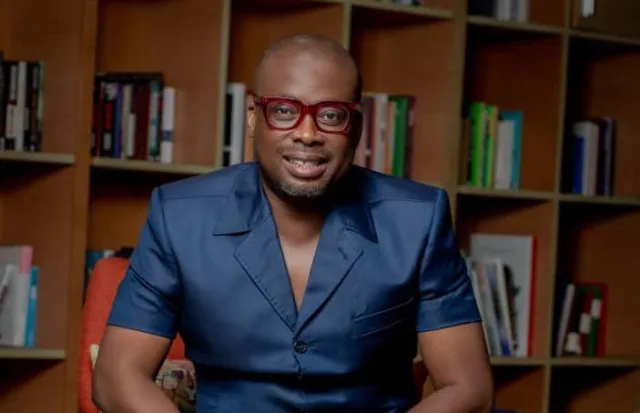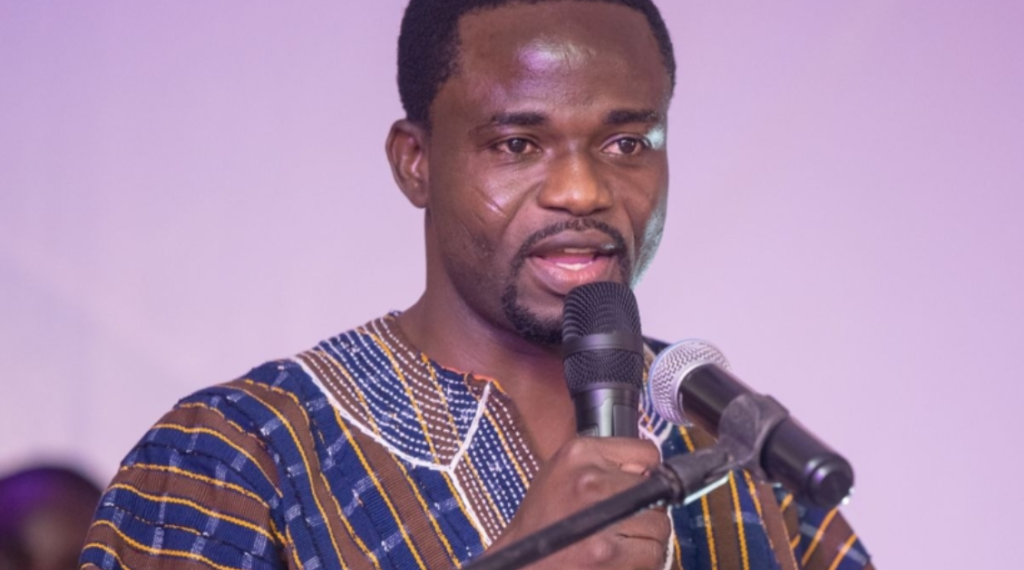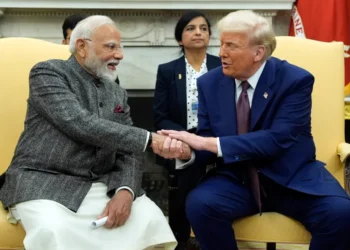Investigative journalist Manasseh Azure Awuni has raised fresh concerns over revenue assurance contracts in Ghana, this time questioning the role of former Ghana Airports Company Limited (GACL) Managing Director Paul Adom Otchere in a controversial deal that has stirred public debate.
In a public response following Adom Otchere’s remarks on a televised program, Manasseh challenged the accuracy of several claims related to a yet-to-be-published investigation he is conducting into a controversial GACL contract.
According to Manasseh, while his findings are still being finalized, certain public statements made by Adom Otchere cannot go unaddressed.
The journalist acknowledged that Adom Otchere had correctly stated that they had exchanged questions and answers regarding the contract, and that some questions remained unanswered.
“I’m still waiting for your response to the questions after the several promises and timelines you gave me.
“In distancing yourself from the contract, you claimed on your show this morning that you didn’t know the owners of the company that won the shady contracts. Paul, this is false. You have admitted to me, not once but TWICE, that you knew the owners of the company from the very beginning. I HAVE EVIDENCE OF THIS.”
Manasseh Azure Awuni

He also asserted that there is concrete evidence showing that a year before the company appeared at a GACL board meeting chaired by Adom Otchere, he had already met with those involved in the firm.
Awuni contended that any denial of knowledge about the company’s leadership is therefore misleading.
He views this misrepresentation as central to the larger issue of how revenue assurance deals are handled in Ghana—behind closed doors and often benefiting politically connected entities.
Revenue Assurance Model Under More Scrutiny
Another point of contention is the financial structure of the GACL contract. Adom Otchere reportedly claimed that the company involved would not receive direct payments but would instead earn a 15 percent commission on any incremental revenue generated above a set benchmark.
However, Manasseh Awuni argued that this type of explanation is deceptive, drawing comparisons with the Strategic Mobilisation Ghana Limited (SML) deal involving the Ghana Revenue Authority (GRA).
In the case of SML, he noted that a similar arrangement was used to justify payments that lacked clear results. By the end of 2023, he stated, the state had disbursed $141 million to SML despite no evidence of specific revenue recoveries.
“…SML could not point to a single recovery they had made. SML could not flag any oil marketing company for wrongdoing.
“Not even one. But they have been paid. And they are claiming credit for revenue increment from the sector even after our investigation exposed them, and the KPMG report corroborated our findings.”
Manasseh Azure Awuni

These patterns, Manasseh argued, are not isolated. He linked them to earlier cases such as the Subah deal, where companies reportedly received large sums from the state without audit evidence of recoveries.
In each instance, companies operate under the label of “revenue assurance” but generate massive earnings from public funds without demonstrating real impact.
Awuni, therefore, rejected the notion that such contracts are harmless because they rely on performance-based payments, insisting instead that they often result in significant public expenditure with no measurable benefit.
He stated that this financial model raises deeper questions about governance and accountability, particularly when state officials—such as GACL board members—deny prior knowledge of contractors despite evidence to the contrary.
In his preliminary response, Manasseh emphasized that his forthcoming investigation will provide full details about the contract, including the roles played by the GACL management and the Public Procurement Authority (PPA).
He suggested that the findings will expose why the deal constitutes a scandal and why several key actors may need to face public and possibly legal scrutiny.
Transparency Concerns On GACL Deal Fuel Public Distrust
Manasseh Awuni’s public comments reflect a broader concern about the lack of transparency and accountability in Ghana’s procurement and revenue collection processes.
He pointed out that revenue assurance contracts have become a pattern of governance malpractice where institutional failure is outsourced rather than fixed.
The model, he implied, allows state institutions to bypass hard reform by hiring private firms whose incentives are aligned not with fixing inefficiencies, but with profiting from them.

These firms then benefit from increases in sector revenues without having to prove that their interventions made any difference.
This emerging pattern, he argued, weakens public trust and creates loopholes for potential misuse of state resources.
By naming both GACL leadership and oversight bodies like the PPA, Manasseh signaled that accountability must extend beyond the contracts themselves to the officials who approve and defend them.
As public interest in the case grows, expectations are rising around the content of Manasseh’s full investigation. If it confirms these preliminary claims, it could trigger another wave of calls for reforms in public financial management and procurement practices in Ghana.
In the meantime, the controversy surrounding the GACL deal adds to an already growing list of questioned contracts across state agencies.
Awuni’s intervention serves as a reminder that behind every revenue assurance deal, there may lie more questions than answers—and the cost is often borne by the taxpayer.



















